Ever since I read Ben Berman Ghan‘s What we see in the smoke, I have been fascinated by the future that authors envision for us. There are so many fantastic books that have recently been published or are coming up that address this theme, that this is the perfect time to be interested in these futuristic endeavours. Today, I want to talk about one such book that I found, thanks to NetGalley: The Warehouse by Rob Hart. It is the only book I have read in the dystopian genre so far that I can confidently say is likely to happen. Let’s take a look at the synopsis and then dive right in!
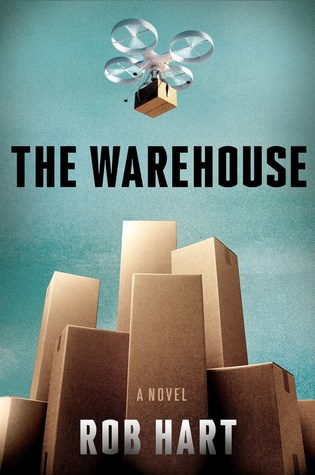
Cloud isn’t just a place to work. It’s a place to live. And when you’re here, you’ll never want to leave.
Paxton never thought he’d be working for Cloud, the giant tech company that’s eaten much of the American economy. Much less that he’d be moving into one of the company’s sprawling live-work facilities.
But compared to what’s left outside, Cloud’s bland chainstore life of gleaming entertainment halls, open-plan offices, and vast warehouses…well, it doesn’t seem so bad. It’s more than anyone else is offering.
Zinnia never thought she’d be infiltrating Cloud. But now she’s undercover, inside the walls, risking it all to ferret out the company’s darkest secrets. And Paxton, with his ordinary little hopes and fears? He just might make the perfect pawn. If she can bear to sacrifice him.
As the truth about Cloud unfolds, Zinnia must gamble everything on a desperate scheme—one that risks both their lives, even as it forces Paxton to question everything about the world he’s so carefully assembled here.
Together, they’ll learn just how far the company will go…to make the world a better place.
Set in the confines of a corporate panopticon that’s at once brilliantly imagined and terrifyingly real, The Warehouse is a near-future thriller about what happens when Big Brother meets Big Business–and who will pay the ultimate price.
The Short Take – From Goodreads
The Warehouse follows the story of Paxton, when he comes to interview for a position at Cloud, the multi-billionaire corporation that employees thousands of people in jobs ranging from security, packaging, health-care, cleaning, tech, and much more. Working at Cloud provides financial stability as well as a place to call home. On the surface, Cloud seems like a good place to work, but Paxton brings with him a side to Cloud that others might not have experienced, unless they were running a small business some years back.
Set in the future, when all deliveries are made using drones, guns are no longer a part of America, and many big cities have collapsed, giving rise to MotherClouds that become big cities themselves, much has changed from today’s time. Rob Hart’s book is a deep study of the drive and choices that led to this future, the effects on the people of the world, and the comfort that it provides. With pieces of insights from Gibson, the visionary behind Cloud, and Zannia, hired to destroy Cloud, the reader is exposed to multiple perspectives on the company and its functionality. I found all three characters to be well thought out and built. With Gibson, especially, his narrative invoked sympathy at times. Paxton, though, is at the midst of everything, struggling to define what freedom truly means.
I really enjoyed this book. It was seasoned with commentary on a number of issues that we face today – the access to guns in America, the reliability on delivery systems like Amazon (not yet drone operated but that’s in the works), green energy, the business vs the government model, law and order, and waste management.
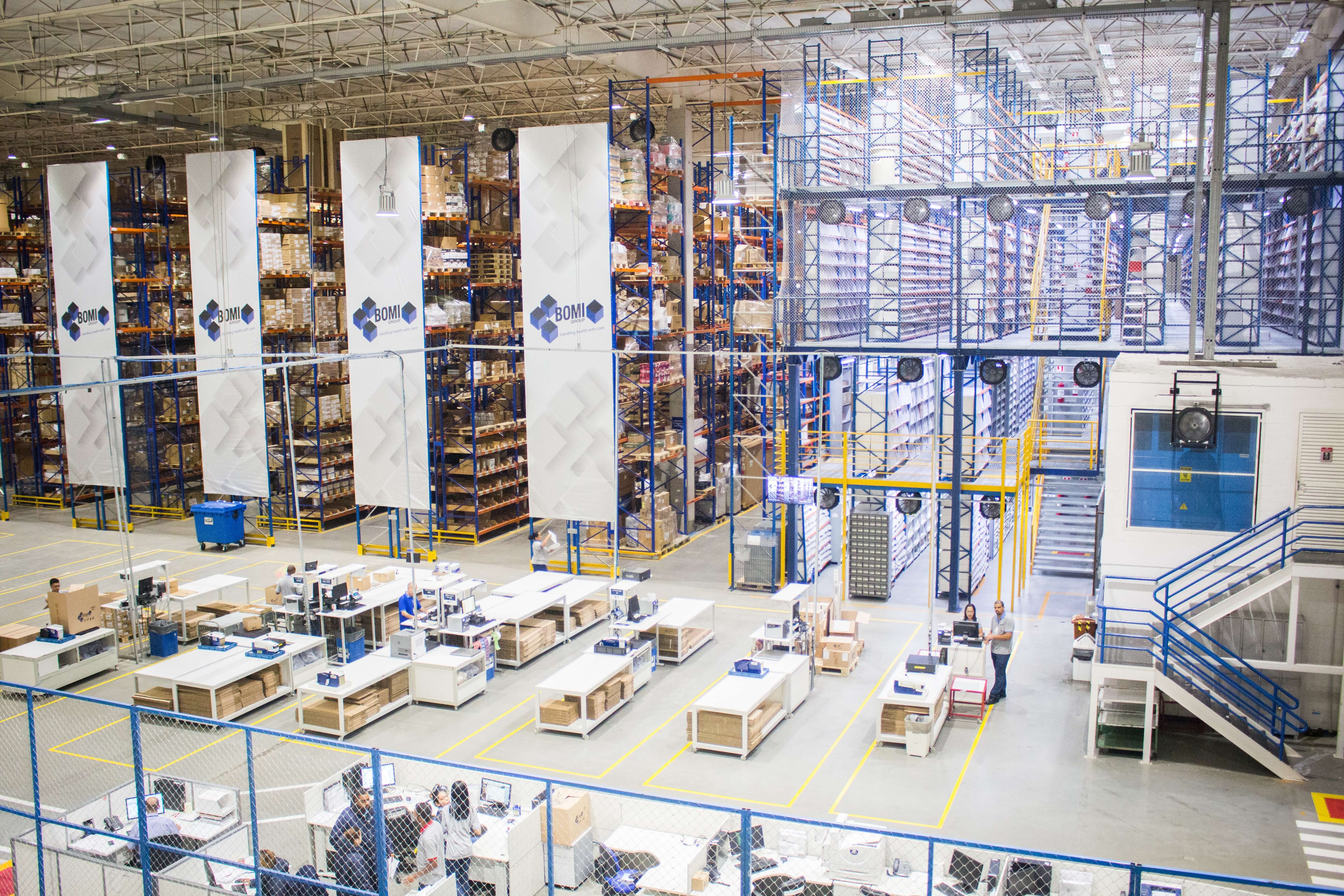
The Long Take – Themes for Thought
There is so much here, layered with multiple human experiences. I want to focus on three main thought trails because of which I absolutely loved The Warehouse.
On ambition
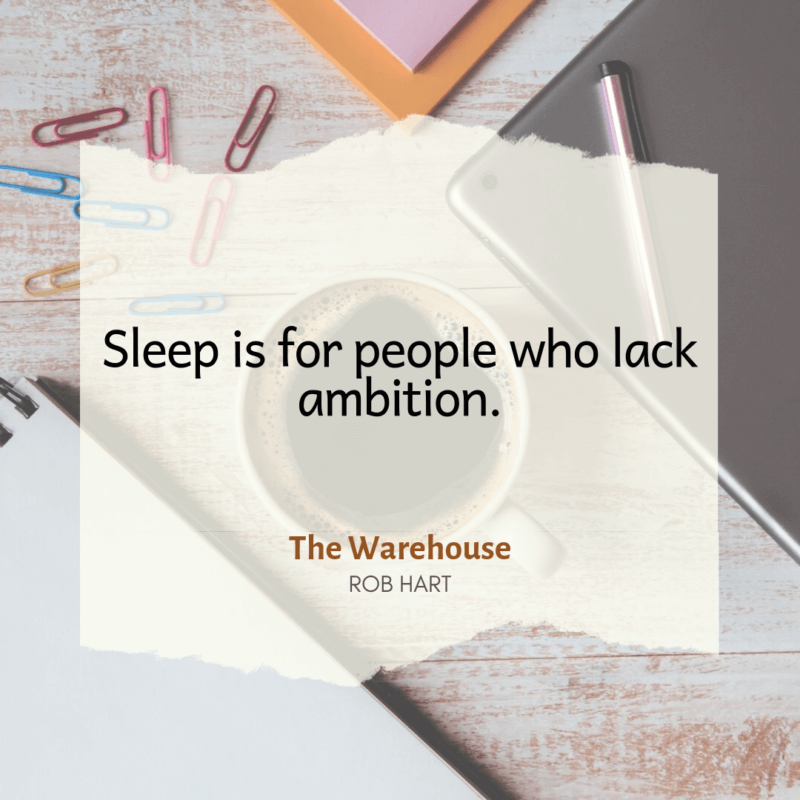
Gibson was an entrepreneur even as a child. When he saw opportunity, he took it. He did not sit still and wait for the world to fulfill his needs – he went ahead and did what had to be done. He always had the greater good in his mind as he built Cloud and his messaging throughout the novel is clear. He understands the audience that watches his every move, as he nears death.
I found it quite interesting that this novel begins with an impending death. This shows that no matter how comfortable we might become in our lives, no matter what we achieve, the experience of death unites us. Even if we feel our grief is bigger than someone else’s, even if we feel we have so much more to loose or put in order before we go, time always slips away. Death does not differentiate between the rich and the poor. That is one of the truths Gibson understands and imparts on his blog posts as his time comes nearer.
His ambitious and hardwork got him to where he is, but his journey has to end somewhere. And someone else’s has to begin. That is such a beautiful way of explaining technology as well – everything finds it right place for a little bit, and then innovation and new ideas come up and replace it. There isn’t a need to be sad about the change. It is inevitable.
On Freedom
The reason I found Paxton’s story the most engaging was because he is a common man, trying to understand what it means to stand up using the help of a giant (Cloud), when he has lost something he built on his own. In his time at Cloud, and because of the interactions that he has with his colleagues and friends, he starts to question what everyday life really is. He already had these thoughts in his mind but Zannia waters the seeds that were growing in his head.
Is life just getting up at a certain time every day? Going to work? Eating out? Coming back home exhausted and then falling asleep? There must be more to this, for sure! On top of all this are the devices, tracking his every move. The cameras in the MotherCloud and their own wristbands that give and restrict access to certain parts of the huge complex.
We all get stuck in these routines and weekends can be replenishing, but not always. Think about how much time you knowingly spend on your devices. Then think about the time that you unintentionally spend on them. How many times does it cross your mind to put it away, “I’ve been on this too long!” Honestly, happens with me too often when I close the facebook app only to open it all over again the next second.
What I am getting at is freedom – what does it mean? Is it just to be able to have control over what we do? Or is it also related to privacy and the ability to be who we are without being tracked? Paxton’s experiences have much to offer and sometimes he faces the predicament of what to do with the information that he gets from these tracking systems. What is the best way to approach them?
These are all valid questions and scenarios to think about. As organizations becomes more and more invested in big data and turn towards the data that they are collecting internally, the questions of privacy and tracking will start to come up more and more. One doesn’t need to wear a wristband to get location information. The online shared calendar at work is already doing that.
On Stories and Ideas
Brave New World, 1984, Fahrenheit 451, The Handmaid’s Tale are dystopian classics that we have grown up reading (and fearing, in many cases). Technology and tracking aside, related to freedom is the concept of ideas and access to information. And books are the backbones of stories, the way to share experiences.
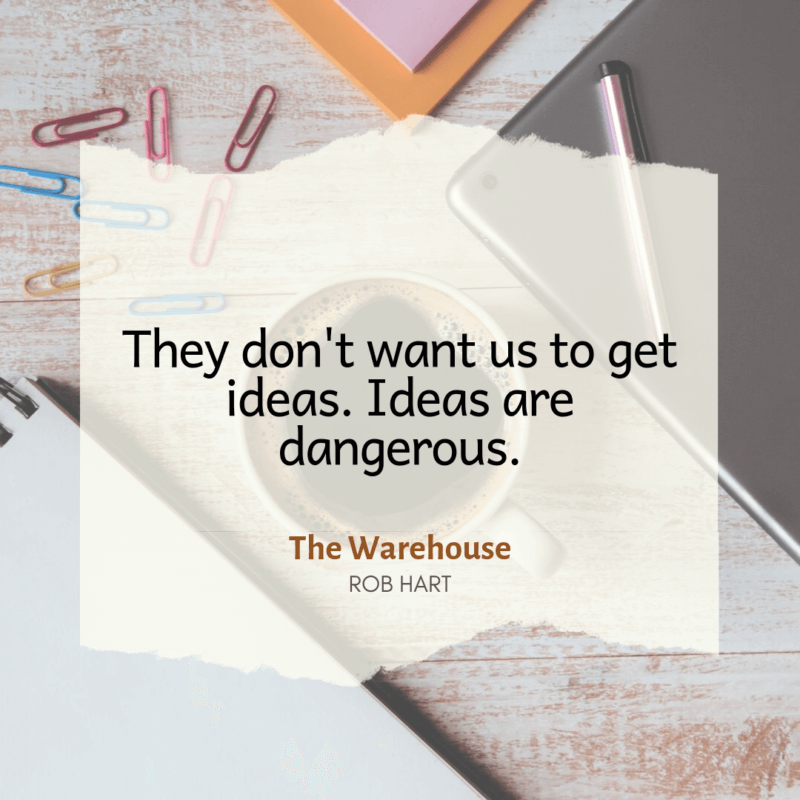
If I can’t find a book in my local bookstore, I turn to Amazon and see if I can find it there. There might even be multiple sellers, offering it at competitive prices. But what happens when there is only one place from which I can buy something? Who is to say that the publishers have stopped producing certain books due to lack in demands, or this major cooperation has stopped keeping stock of them? There are so many hidden variables and factors that a common man might never know.
I have thought about access of books at many points in my life. The most recent one was about the difference between book availability between parts of the world. But The Warehouse really made me wonder, where does one go from there? With so many different publishers and retail stores, when we still do not have widespread access of ideas, how much does one retailer limit access?
But most importantly, what happens to bookbloggers like me who live to read?
Anyway, just throwing some ideas out there!
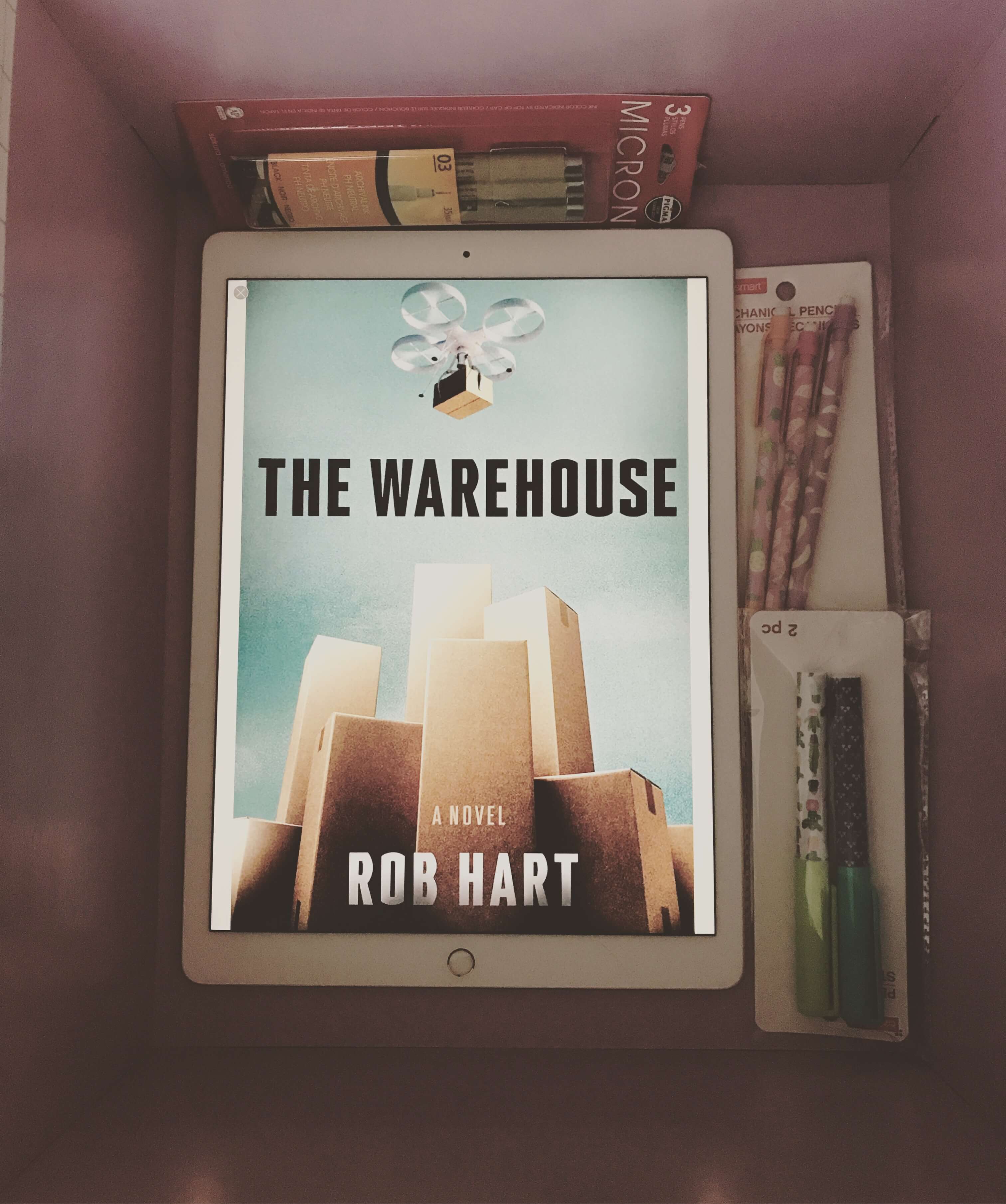
If you have been following my book thoughts, you would know that I love books that offer more food for thought. The Warehouse truly led me down that lane and I am grateful for that. It is always a pleasure to challenge preconceived notions and get new insights.
The Warehouse is now out in stores so get a copy and let me know what you think! Let’s have a book-discussion!
Also check out Rob Hart’s other works here. I’ll be sharing my interview with him in the coming days so stay tuned for that! 🙂
Cover image: Photo by Ramon Cordeiro on Unsplash

Be First to Comment